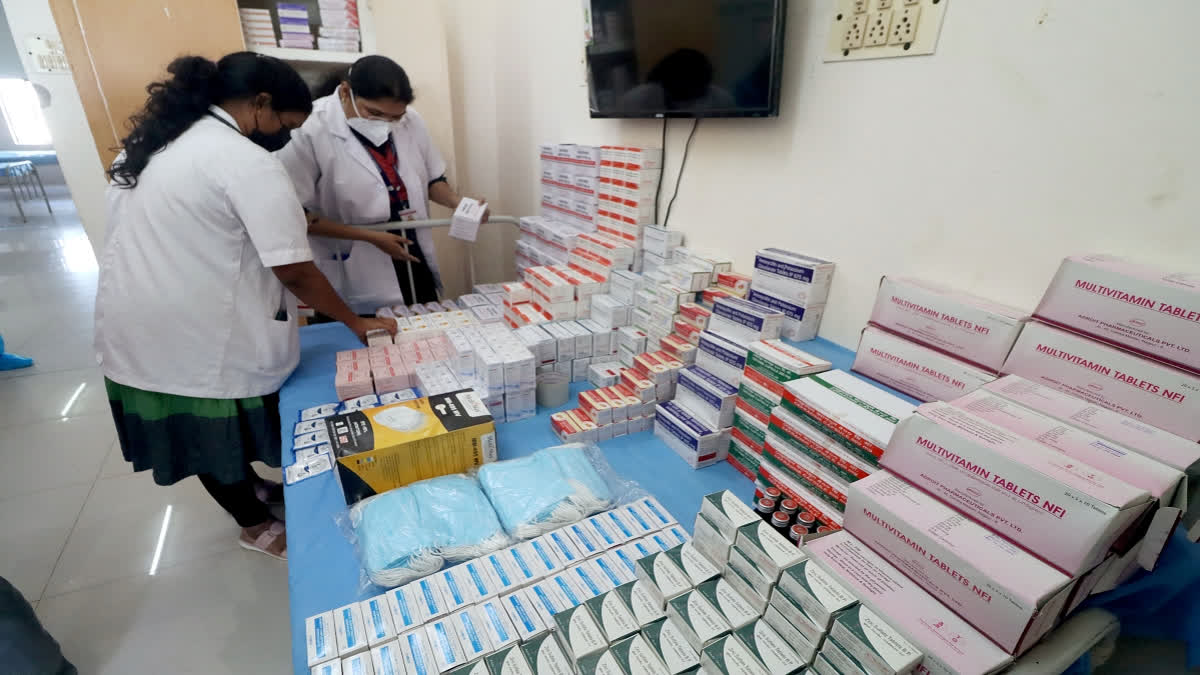New Delhi: India's clinical trial waiver for new drugs tested abroad raises concerns about patient safety and harms local industry, said Global Trade Research Initiative (GTRI) on Monday. It said that the decision to waive local clinical trials has raised concerns among healthcare professionals, patient advocacy groups, and some regulatory experts.
"They (healthcare professionals) worry that introducing drugs without local trial data could be risky, especially considering India's unique genetic and environmental factors," the GTRI said.
On August 7, the Drugs Controller General of India (DCGI) allowed certain new drugs approved in countries like the USA, UK, Japan, and the EU to be sold in India without local clinical trials. This waiver raises concerns about patient safety and the impact on the local pharmaceutical industry. By overlooking India's unique genetic diversity, the waiver could lead to unexpected safety and effectiveness issues.
"Additionally, it might increase competition from multinational corporations, making it harder for local pharmaceutical companies and Contract Research Organizations (CROs) to grow. A waiver is one-sided with India not getting reciprocal treatment in the beneficiary countries. It's a major victory for Pharma MNCs, who will now push for other demands," the GTRI said.
Patient advocacy groups fear this could compromise safety and lead to unexpected side effects, stressing the need for trials to ensure drugs are safe for Indians. There are also concerns about potential corruption and whether the systems in place can monitor drug safety effectively.
While the Indian Pharmaceutical Alliance (IPA) and the Organization of Pharmaceutical Producers of India (OPPI) support the policy for making India a more attractive market for new drugs, critics argue they are focusing too much on profits and not enough on patient safety or India’s unique genetic makeup.
The Global Trade Research Initiative (GTRI) is a research Group focused on climate change, technology and trade. It aims to create high-quality and jargon-free outputs for governments and industry from the perspective of development and poverty reduction.
Regulatory details
The DCGI used Rule 101 of the New Drugs and Clinical Trials Rules, 2019, to waive local trials. This rule allows the DCGI to approve new drugs without local trials if they've already been approved in certain developed countries. The waiver applies to specific types of drugs, including those for rare diseases, gene and cell therapies, pandemic-related drugs, defence-related drugs, and drugs with major therapeutic improvements over current treatments.
Major Concerns
The waiver to allow certain new drugs approved in developed countries to be sold in India without local clinical trials has raised significant concerns. One of the primary issues is the disregard for India's unique genetic diversity. While countries like the USA and the European Union have diverse populations, India's genetic makeup is distinct, making local trials essential to ensure that new drugs are both safe and effective for Indian patients.
The waiver also overlooks the importance of conducting trials across different regions of India — North, South, East, and West — to assess drug performance among various ethnic and genetic subgroups. This is crucial because India's genetic diversity impacts how drugs are metabolised, their effectiveness, and safety. Without these local trials, there is a real risk that drugs approved abroad may not perform as expected in the Indian context, potentially leading to safety and efficacy issues.
Many of these drugs are developed quickly, not fully tested, and are experimental. Some companies get approval abroad but choose not to sell these drugs there due to concerns about patent protection and potential compensation if something goes wrong. Instead, they focus on countries with weaker regulations, like India.
Another concern is the lack of reciprocity from developed countries. While drugs approved in these nations can be sold in India without local trials now, Indian pharmaceutical companies still face stringent testing requirements to gain approval in those markets. For instance, an Indian firm would still need to spend $40 million to $80 million on clinical trials and approvals to launch a new drug in the USA.
The waiver could negatively impact local pharmaceutical firms and Contract Research Organizations (CROs) in India. With international firms entering the Indian market more easily, local companies may face increased competition. Additionally, the reduction in the number of clinical trials conducted in India could hinder the growth of over 250 local CROs and other stakeholders in the clinical trial industry.
Victory for Pharma MNCs
Major multinational pharmaceutical companies argued that clinical trials in India were still too expensive, even though they cost much less than in the USA. Eventually, they secured a waiver, meaning they no longer have to conduct local trials in India. This benefits these companies by reducing costs and time, allowing them to launch new drugs faster. They also avoid the risk of compensation and liability if something goes wrong during trials. This change helps these companies reach more patients in India and expand their global presence.
Recommendations post-waiver
According to GTRI, the Indian Government should enhance monitoring systems for drugs that bypass local trials to quickly identify and address any adverse effects, implementing stringent post-market surveillance measures to track drug performance in India's diverse population. Transparent processes should be implemented to prevent corruption and ensure that decisions related to the waiver prioritise public health, with strict oversight of the approval process and post-market surveillance effectiveness. It said that patent safety groups should actively monitor the safety profiles of new drugs introduced under the waiver, reporting any adverse effects or issues to regulatory authorities and the public.



